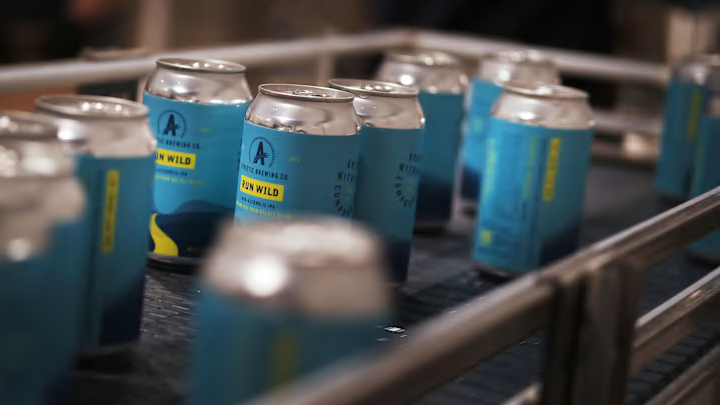Should there be a ban on nonalcoholic beverages for minors?
Ahh, the age-old argument of whether to serve nonalcoholic beverages to minors or not to serve nonalcoholic beverages to minors. It's a tale as old as... roughly a couple of years ago. The nonalcoholic beverage seen has been booming the past few years, with many new and interesting players joining the market.
Nonalcoholic beer has been around for thousands of years. Until recently, there really hasn't been much public outcry over these liquor substitutes. I don't think it would be outrageous to say that until a couple years ago, not many people cared about nonalcoholic beverages or paid them any mind.
Fast forward a few years and nonalcoholic beverages are living rent-free in many headspaces. The conversation around zero-alcohol drinks has evolved significantly. Initially marketed as a health-conscious alternative for those looking to minimize hangovers, reduce alcohol intake, and pursue a healthier lifestyle, the focus has now broadened.
Current discussions are increasingly centered on the younger demographic—children and adolescents—and the appropriateness of their access to these beverages. This shift has sparked debate over whether age restrictions should be implemented for the purchase of non-alcoholic drinks.
What are the arguments?
The arguments for age restriction
The popularity of zero-alcohol drinks among young people highlights the need for age restrictions. These beverages mimic alcoholic ones, potentially normalizing underage drinking. Implementing age restrictions can help maintain a clear boundary, preventing early exposure to drinking culture.
Furthermore, unrestricted access might confuse parents and educators aiming to discourage early alcohol consumption. Setting age limits provides a consistent societal message about consuming such beverages, supporting public health and responsible drinking initiatives.
The Arguments against age restriction
Imposing age restrictions on zero-alcohol drinks may be unnecessary. These beverages allow teenagers to engage in social traditions safely, without the risks linked to alcohol. Providing these options can promote responsible behavior among the youth.
On the business front, implementing age restrictions for non-alcoholic beverages introduces additional complexities for brewers, producers, and sellers. These regulations could overly burden business operations, making it increasingly challenging to operate efficiently. Moreover, if government regulations intensify, there’s a risk of a significant decline in production, as these added hurdles could complicate the manufacturing and distribution processes.
Moreover, restricting these drinks might stigmatize them as equivalent to alcoholic beverages, potentially deterring adults who choose them for health or lifestyle reasons. Allowing open access promotes inclusivity in social settings, making these drinks a healthy part of family and community gatherings.
Opinion - my personal take on age restriction
I’ll come right out and say it: I firmly believe that the drinking age should be 18. Now, having said that you can probably guess where I’m heading with this. Just like coffee and energy drinks, I contend that nonalcoholic beverages should be accessible to minors, albeit with some limitations. Ultimately, the decision should rest at the discretion of the retailers, but setting the age threshold at 17 seems like a reasonable starting point to me.
It's hard for me to level with the side that is for the age restriction. You can find the arguments for age restriction in Pien Huang's article, "ID please. Should kids be able to buy nonalcoholic beer, wine and mocktails?" on NPR.org. Their arguments follow the "slippery slope" argument and I find those arguments insulting and lacking.
The slippery slope argument is invalid for multiple reasons. Those reasons are lack of direct causation, exaggeration of outcomes, neglects preventative measures, and logical fallacy. There is no correlation between minors having nonalcoholic beverages and growing up to be alcoholics. I think that people are too quick to judge an entire group of people based off of their own control issues.
I firmly believe that nonalcoholic beverages should be as accessible to minors as coffee and energy drinks, with appropriate regulations. The caution against this often relies on the slippery slope argument, which I find unconvincing and dismissive. There’s no strong evidence that allowing minors to purchase nonalcoholic drinks leads to alcoholism.
Setting the age limit at 17 offers young adults some independence while maintaining necessary oversight. It’s crucial to base policies on evidence and practicality, respecting young people’s ability to make responsible choices. If we trust them to drive, get married, and consume coffee and energy drinks at 17, we should trust them with a nonalcoholic drink as well.
